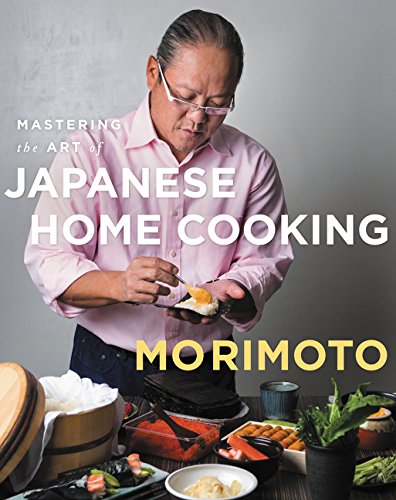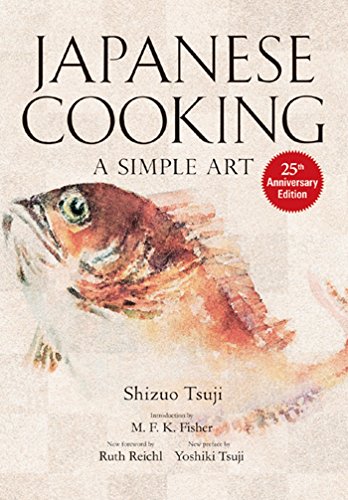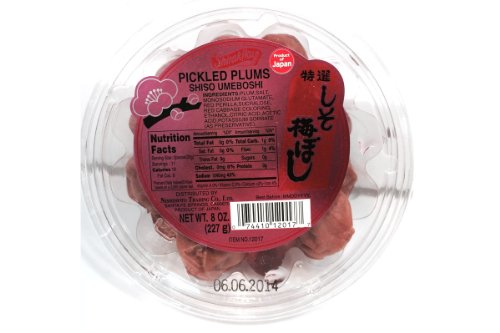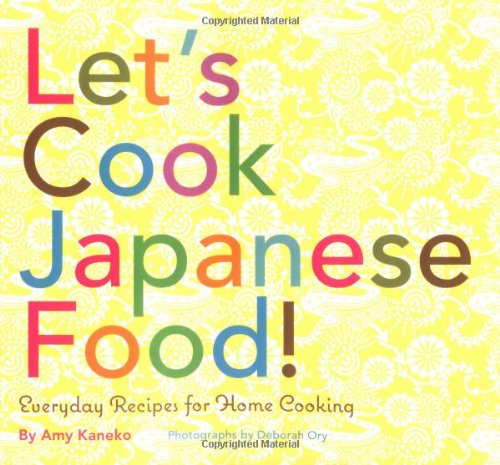Top products from r/JapaneseFood
We found 36 product mentions on r/JapaneseFood. We ranked the 143 resulting products by number of redditors who mentioned them. Here are the top 20.
2. Ajinomoto - Hon Dashi (Soup Stock) 4.23 Oz.
Sentiment score: 2
Number of reviews: 2
Dashi, or Bonito fish soup stock, is used as a base for almost all Japanese soups, broths and stewsUse dashi as a base for miso soup, udon/soba soup, sukiyaki or whatever you would likeDepending on desired flavor/dish, 1 tsp. makes 3-6 cups of dashiEach box contains 2 bags of powdered dashi - each b...
 Show Reddit reviews
Show Reddit reviews3. House - Shichimi Togarashi - Japanese Mixed Chili Pepper 0.63 Oz
Sentiment score: 1
Number of reviews: 2
Shichimi Togarashi is a spicy powdered assortment of dried chil peppers and other seasoningsIngredients include red chili pepper, orange peel, sesame seeds, Japanese pepper, ginger and seaweedAdd this flavorful seasoning to your noodle soup dishes or any other dish that needs an extra spiceIchimi To...
 Show Reddit reviews
Show Reddit reviews5. Onigiri Rice Ball Seaweed Wrappers Nori & Sushi Rice Mold
Sentiment score: 2
Number of reviews: 2
Include 10 sheets of Seaweed(Nori) & 1 Onigiri Rice MoldEach seaweed is individually separated with the Stay-Fresh PackMake your Rice Ball to go
 Show Reddit reviews
Show Reddit reviews6. Aroma Housewares ARC-743-1NGR 6-Cup (Cooked) (3-Cup UNCOOKED) Pot Style Rice Cooker and Food Steamer,Red
Sentiment score: 2
Number of reviews: 2
Item Shape: RoundPerfectly prepares 2 to 6 cups of any variety of cooked riceSteams meat and vegetables while rice cooks belowSimple, one-touch operation with automatic Keep-WarmGreat for soups, jambalaya, chili and so much more!Full-view tempered glass lidIncludes Steam Tray, Rice Measuring Cup and...
 Show Reddit reviews
Show Reddit reviews7. Mastering the Art of Japanese Home Cooking
Sentiment score: 1
Number of reviews: 2
Ecco Press
 Show Reddit reviews
Show Reddit reviews8. Kansha: Celebrating Japan's Vegan and Vegetarian Traditions [A Cookbook]
Sentiment score: 1
Number of reviews: 1
![Kansha: Celebrating Japan's Vegan and Vegetarian Traditions [A Cookbook]](https://m.media-amazon.com/images/I/514ngPB98LL.jpg) Show Reddit reviews
Show Reddit reviews9. Cooking Basic Encyclopedia (non ? no basic Encyclopedia) [Tankobon Hardcover]
Sentiment score: 0
Number of reviews: 1
![Cooking Basic Encyclopedia (non ? no basic Encyclopedia) [Tankobon Hardcover]](https://m.media-amazon.com/images/I/61d2R5zYRvL.jpg) Show Reddit reviews
Show Reddit reviews10. Ramen: Japanese Noodles and Small Dishes
Sentiment score: 1
Number of reviews: 1
ANOVA Pavilion
 Show Reddit reviews
Show Reddit reviews11. Angry Onigiri - Kawaii Japanese Food T-Shirt
Sentiment score: 1
Number of reviews: 1
You love Onigiri? Then this little angry one is perfect for every Japan Food Lover.Japan Anime Onigiri FoodLightweight, Classic fit, Double-needle sleeve and bottom hem
 Show Reddit reviews
Show Reddit reviews12. Everyday Harumi
Sentiment score: 1
Number of reviews: 1
Used Book in Good Condition
 Show Reddit reviews
Show Reddit reviews13. Everyday Harumi: Simple Japanese food for family and friends
Sentiment score: 1
Number of reviews: 1
 Show Reddit reviews
Show Reddit reviews14. Donabe: Classic and Modern Japanese Clay Pot Cooking [A Cookbook]
Sentiment score: 1
Number of reviews: 1
Donabe Classic and Modern Japanese Clay Pot Cooking
![Donabe: Classic and Modern Japanese Clay Pot Cooking [A Cookbook]](https://m.media-amazon.com/images/I/61mY5um5j7L.jpg) Show Reddit reviews
Show Reddit reviews15. Japanese Soul Cooking: Ramen, Tonkatsu, Tempura, and More from the Streets and Kitchens of Tokyo and Beyond [A Cookbook]
Sentiment score: 0
Number of reviews: 1
Ten Speed Press
![Japanese Soul Cooking: Ramen, Tonkatsu, Tempura, and More from the Streets and Kitchens of Tokyo and Beyond [A Cookbook]](https://m.media-amazon.com/images/I/61KEL+Jcz0L.jpg) Show Reddit reviews
Show Reddit reviews16. The Enlightened Kitchen: Fresh Vegetable Dishes from the Temples of Japan
Sentiment score: 1
Number of reviews: 1
Kodansha
 Show Reddit reviews
Show Reddit reviews17. The Japanese Kitchen: 250 Recipes in a Traditional Spirit
Sentiment score: 1
Number of reviews: 1
Great item for the Japanese Kitchen lovers
 Show Reddit reviews
Show Reddit reviews18. Harumi's Japanese Cooking: More than 75 Authentic and Contemporary Recipes from Japan's Most Popular Cooking Expert
Sentiment score: 0
Number of reviews: 1
HP Books
 Show Reddit reviews
Show Reddit reviews



I bought my cheapy old reliable rice cooker for just about $15 in a local True Value store (kinda like Harbor Freight/OceanStateJobLot but for appliances housewares etc,) and it's not fancy but I've had it for 2 years and it's still going strong. It makes pretty good rice, though I am just as used to making good rice on the stove it is just easier to have 1 burner free if I need it. Rice doing its own thing off to the side.
I've only used plastic or wooden utensils in my rice cooker pot and wash it gently after a soak, with a soft sponge. Basically never scratching it if I can help it, and it's held up very well.
I live in a very poor household, believe you me, but there may come a month where you do find yourself with an extra $15 in your wallet. Instead of buying those few coffees, one CD a month, 2 six packs of beer, whatever your vice; invest in getting yourself some things that make life seem more normal once in a while. Things that keep you well fed, well rested, and able to find transportation should never be looked over ;)
How authentic do you want to go?
In terms of truly authentic Japanese cuisine, the absolute best book is "Japanese Cooking: A Simple Art" by Shizuo Tsuji. It teaches the aesthetics behind Japanese food as well as all the requisite techniques, but it can be a bit too hardcore for the home cook.
Next I would recommend something by Yoko Arimoto, such as "Simply Japanese: Modern Cooking for the Healthy Home". Highly respected in Japan as a cookbook author; she's very flexible with her ingredients, which make it easier to adapt in an non-Japanese environment.
Elizabeth Andoh is very good too; hits all the right notes.
Harumi Kurihara, is popular but in a Martha Stewart sort of way. She'll give you basic recipes, then she'll give you something that is really "out there". Her recipes tend to be...well, handy. Kind of like what Giada is to Italian cooking.
If you've got an Asian grocery store near you they will most likely carry hondashi, http://www.amazon.com/Ajinomoto-Dashi-Soup-Stock-5-28/dp/B0002YB40O and may have what you need to make dashi, kombu, http://en.wikipedia.org/wiki/Kombu, and katsuobushi, http://en.wikipedia.org/wiki/Katsuobushi (it will come pre-shredded in a bag). Dashi is one of the easiest stocks to make, only takes about 30 minutes or so, http://japanesefood.about.com/od/soup/r/konbukatsudashi.htm
The Japanese do have teir own version of curry and it is delicious. I think they got it from the British so it's a re-interpretation of a re-interpretation. It's one of the most popular foods in Japan. It's usually made with pork, but if you're going to make it with katsu, make it vegetarian. You can buy a box of curry roux at most Asian grocery stores, http://www.amazon.com/Golden-Curry-Sauce-8-4oz-pack/dp/B0011UGYLM to use. Basically, take a pot, add a bit of oil (for Asian food I like peanut), cook some white onions in the oil, I also add some sliced garlic which is not traditional, add some potato and carrots (you may want to cook them half way first), add water, simmer for about 20 minutes, add the curry roux, stir it in the simmering water and it will break down, and then continue for 5 minutes or so. The curry roux will have instructions on the back of the box, it's super easy. This is the basic version but there are all sorts of variation, some put in grated apple or even coffee in it! It's my favorite thing to eat with katsu.
The type will usually be listed right on the package. The rice that I buy (Nishiki) specifically says it's good for sushi. You could always order online from Amazon or Jet to be more discreet.
You can use pretty much any rice, it's just that some types will work better than others. What's more important is the preparation of the rice itself. Using sushi rice vinegar or sugar and salt + fanning the rice properly will make it really sticky. There are Onigiri kits that actually keep the seaweed separate until you want to eat it, which is awesome. You might want to look into those too.
Good luck!
Between Just One Cookbook, Japanese Cooking 101, Chopstick Chronicles, Japanese Cooking: A Simple Art ^BOOK, and Ochikeron ^YouTube you should be able to figure out something you like.
I am not the biggest fan of any of Nancy Singleton Hachisu books for beginners, but there are other good books, like Everyday Harumi - pretty much any of Harumi's books will be good, she doesn't go for crazy ingredients (ala Nancy Hachisu) and she's usually the top cookbook writer in Japan.
It's rare that I get to a page on my frontpage that threads like yours appear. I guess it's your lucky day!
Last year I bought a ramen cookbook after reviewing what was available here in Germany. In the end I chose "Ramen: Japanese noodles and small dishes" by Tove Nilsson. What I liked most about it was that most of the book focused on actual Ramen you would find in Japan. You might think: what else should a ramen cookbook contain? From my observation: a lot of weird stuff that you'll never try that will be completely useless for you. Tove Nilsson covers the basics, the traditional dishes, some new and funky ones and shows a bunch of different ways on how to do certain recipes (what kinda broths you can use, three or four different ways to make chashu and so on)
Last December I finally made my first ramen from the book! And it was delicious. Classic Shoyu Ramen with a chicken-pork broth, homemade chashu. I still have to post the pics on /r/ramen ...
Bonus points for a bunch of Japanese side dishes like Gyoza, a lot of topping recipes and so on.
I recently received Everyday Harumi as a gift and it is delicious. The recipes, not the book.
She starts by listing all of the basic ingredients that are central to almost every Japanese meal: rice, soy sauce, mirin, sake, katsuoboshi, etc. She also covers how to make some basic sauces and soup stocks that are commonly shared among dishes.
There's also cookingwithdog, which is available for free on YouTube :)
For rice, look for a short or medium grain rice. Long grain rice is what's typically served at chinese restauraunts and doesn't have the sticky texture that shorter grain rice has. In the US, it's much cheaper to get California-grown rice than getting Japanese imported rice. Also look at Korean brands of rice as they tend to be similar to Japanese rice. Many brands offer small bags (5 pounds or less) so you can try them and see what you like best and is also wallet friendly.
For a rice cooker, you can get away a basic $20 rice cooker. It won't make the best rice in the world, but it'll be tolerable if you want to save up for a high-end rice cooker.
Some high-end brands of rice cookers are Zojirushi, Tiger, Panasonic, and Cuckoo. The price tiers are similar across the brands and each tier incorporates more/different technologies. The levels will be basic (mostly just cook and warm settings), fuzzy logic/micom, neuro fuzzy logic, induction heating, pressure cooking. Some brands also have unique features like 'diamond coated cooking bowl' and they seem to be more gimmicky than anything else. Price ranges are ~$100 - micom, ~$150 - neuro fuzzy logic, ~$250 induction heating or pressure cooking, >$350 induction heating and pressure cooking. I have a Zojirushi rice cooker that I bought 3 years ago and still works perfect.
Rice cooker cup size will affect price too. Also, cheap rice cookers measure in cooked cups where more expensive models measure in uncooked cups. More expensive does not equal faster cooking (until you reach the pressure cooker level). A $20 rice cooker will cook rice in about half an hour, where a $250 induction heating rice cooker will take >45 minutes. The added time is because it includes soaking time for the rice and it operates at varying temperature levels during cooking, where the $20 rice cooker would just boil it the entire time.
Sorry for late response.
Shichimi pepper called "shichimi togarashi" in Japanese is like this and would be available at any Japanese grocery store. It contains powdered red chili pepper and other six seasonings ("shichimi" can literally be translated to "seven tastes"), would be always on the table in Japan, and especially indispensable to me for oyako-don, katsu-don, udon, tofu dishes like hiyayakko and much more other Japanese dishes!
Though Japanese dishes are generally plain and too plain for you westerners, a sprinkling of shichimi would make them a bit spicy and taste better!
As to how to make a sheet of nori into pieces, dried enough and crispy one would easily crumble by crumpling just like you'd do with a sheet of paper.
Japanese Farm Food ... awesome recipes and a very helpful perspective. Award-winning
Donabe: Japanese Clay Pot Cooking ... requires a donabe
Japanese Cooking: A Simple Art ... a famous comprehensive bible of Japanese cooking
Im also on justonecookbook.com all the time.. and if they would ever print an actual cookbook I would buy it.
I like:
-The Japanese Kitchen by Hiroko Shimbo as an all-around thorough book with recipes that don't necessarily take too much time to prepare. A thorough description of ingredients, how to find the best ingredients, and what to do with them very helpful (Its my current favorite).
-This book is good for beginners but sticks to mostly traditional/homestyle fare (my 2nd fave).
-And this for the super hardcore but with less pictures and more time consuming recipes.
-This book for its individual, everyday/practical recipes.
I've made multiple recipes from all of them.
>https://www.amazon.com/gp/product/B00886OQ1W/ref=ppx\_yo\_dt\_b\_asin\_title\_o06\_s00?ie=UTF8&psc=1
THANK YOU!
and thanks for give me this link! kept it in my list!
Even Tsuji says that instant dashi is fine (as long as you know & respect how to make authentic dashi), and that book was published in the 80s. I can only imagine that today's instant dashi is better still.
A couple of my favourites, not exactly the type of food you'd make every day but both very beautiful and well-curated:
Kaiseki: Zen Tastes in Japanese Cooking
Good Food from a Japanese Temple
OP, you can get salted plums through Amazon. I just got three containers, because I am kookoo for ume boshi.
https://www.amazon.com/gp/product/B00886OQ1W/ref=ppx_yo_dt_b_asin_title_o06_s00?ie=UTF8&psc=1
This one has shiso leaves in it. (Shiso is also called beefsteak plant. Also called perilla.)
Your onigiri look great!
Someone's probably already mentioned it but if you want vegan Japanese food you should look into Shojin cuisine. I bought this cookbook off of Amazon which has lots of good recipes, most of which are vegan (I only saw a couple of desserts which used yogurt but other than that it all seemed vegan).
So what is the difference between buying something like this or this, which is the same? and straight up shaved bonito flakes? Is the shaved bonito flakes a less formatted product?
Edit: Food isn't formatted, I meant to ask if the bonito flakes are a less processed (not ground and reshaped into little daishi balls)?
If you want a book to teach you about traditional Japanese cooking, it's Japanese Cooking: A Simple Art. It's half standard cookbook, half treatise on the subject. The book has an emphasis on techniques and principles, so most of the recipes provided can serve as a template for extensive variations and adaptations. It's also primarily focused on traditional Japanese cooking (washoku) rather than Japanese adaptations of foreign food (yoshoku), which would generally be less healthy.
I've got everyday Harumi and it's great.
From “Mastering the Art of Japanese Home Cooking” by Morimoto. Amazon carries it.
I’ve made a few things from this book so far, and all of them are wonderful.
Yeah! You can even order them on amazon and it comes with the mold !
https://www.amazon.com/Onigiri-Rice-Seaweed-Wrappers-Sushi/dp/B004O3LKEO
If you want to continue it past 30 days, I highly recommend this book!
Yeah!
Happy One: https://www.amazon.com/dp/B07XLCRDKW
Angry One: https://www.amazon.com/dp/B07XS7ZHZ4
I've had good luck with Let's Cook Japanese Food, by Amy Kaneko. If I remember correctly, Ms. Kaneko married into a Japanese family and had to learn how to cook this stuff. Fore warning, some of the recipes can be a bit hard, but most are reasonable
If it had red pepper flakes in it, it's probably shichimi togarashi.
I found it on amazon japan
Japanese Soul Cooking: http://www.amazon.com/gp/aw/d/1607743523?pc_redir=1414099212&robot_redir=1
Japanese Cooking: A Simple Art
"Harumi's Japanese Cooking" is authentic and it's in English. Harumi Kurihara is on NHK cooking programmes a lot.
Check out this book.
And get some practice making the dishes before you switch to japanese food 100% of the time.
Also, get a rice cooker.